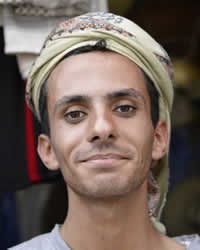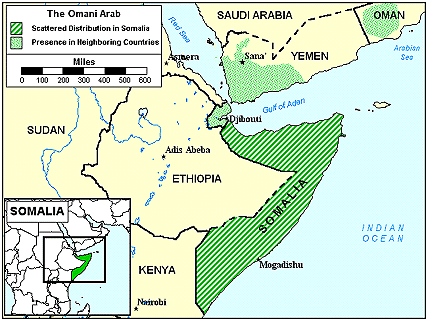The Arabs from the Arabian Peninsula are the original Arabs. Tribes of nomads from the Arabian Desert developed Arab culture. From there, they expanded into what we now know as the Arab World, where Arabic is the key language.
Yemenis started migrating north during the pre-Islamic era. Many Arab families with common names (e.g., Haddad, Haddadeen, which means Smith or metalworker) that have long family trees in Syria, Lebanon, Palestine and Jordan trace their ancestry to that early migration from Yemen. For example, the family name, Haddadeen, originated in Sana'a.
There are many Arabic dialects spoken in Yemen. Today, there is a sharp division between Yemeni from the northern tribes and the southern ones. Those from the north descended from Mesopotamians, who entered their land 1,000 years before Christ. They claim Ismail from the Book of Genesis, and their patriarch. Those from the south believe they descended from Qahtan, also known as Joktan, in the Bible.
There has been much business and social interaction between Yemenis and Somalis dating back hundreds of years. There has even been intermarriage between Yemenis and Somalis. Both countries have taken in refugees from the other during times of crisis. There are many Somalis taking refuge in Yemen, but now we have some Yemenis taking refuge in Somalia.
The north and the south were separate nations in the 70s and 80s; one backed by communists and the other by the West. They merged for a couple of years, but now they are fighting once again. Iran backs one side using Shia Islam as their banner, while the other supports a Sunni Muslim head of state. Yemenis would love to have the fighting stop, but the situation is out of their control.
The war is driving people out of Yemen, and there is a large Yemeni diaspora in various nearby countries, including Somalia. However, since Somalia has serious problems of her own, Yemenis are more likely to flee to Ethiopia, etc.
Yemenis who flee to Somalia must deal with the traumas of war. They try to take up whatever profession they had in Yemen. Yemeni Arabs are only able to find jobs if they have an existing network, something that rarely happens. Yemeni Arabs are sometimes singled out by Somali gangs and police officers resulting in violence. Yemeni refugees in Somalia feel neglected by United Nations (UNHCR) refugee care efforts in Somalia. This is partly because of the great needs of the Somali majority, but also because of a language barrier. Fortunately, they usually receive medical and educational aid.
Yemeni Arab society is patrilineal, so they pass down inheritances through the males. Since they consider children a family's greatest asset, they value women for their ability to bear children.
The Yemeni Arabs have had a close association with Islam since it began in the 600s. Today, nearly all the Yemeni Arabs are Muslim, no matter where they live. Two-thirds of Yemenis adhere to some form of Sunni Islam, and about one-third are Shia Muslims. Though they vary in terms of tribal loyalty, one thing Yemeni Arabs all agree on is devotion to the Islamic religious system. Almost none of them have put their trust in Jesus Christ, no matter where they live.
Yemeni Arabs in diaspora need peace in their homeland. All of them have family members whose lives are in jeopardy because of the fighting. There will be no end to the fighting until there is humble repentance, and the acknowledgement that they must submit to the sin-free Savior. They need the intervention of Jesus Christ.
Pray for a lasting and just peace in Yemen that will allow the Yemeni diaspora to return home.
Pray for an end to foreign military intervention and blockades in Yemen.
Pray for the Lord to use the instability in Yemen to help Muslim Yemenis to understand they need a Savior.
Pray for the small number of Yemeni believers to boldly proclaim the gospel to their families, friends and neighbors.
Pray for small, extended-family based home fellowships to multiply in Somalia.
Scripture Prayers for the Arab, Yemeni in Somalia.
https://sanaacenter.org/publications/main-publications/19116
| Profile Source: Joshua Project |












